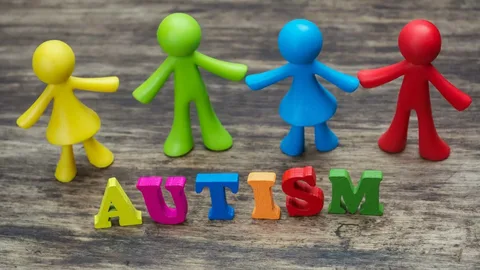People with high-functioning autism often encounter challenges in navigating the social world. For them, authenticity and clear communication are not just preferences—they’re essential for understanding and connection. However, when interacting with people pleasers, who may prioritize others’ feelings over transparency, friction can arise. This article dives into the reasons behind this dynamic and offers insights to foster mutual understanding. Let’s explore ‘Why Are People with High-Functioning Autism Against People Pleasers?’

What Is High-Functioning Autism?
Defining Traits and Characteristics
High-functioning autism falls under the autism spectrum. Individuals with this condition typically have average to above-average intelligence but face difficulties in social communication and interpreting social cues. Common traits include a preference for routines, sensory sensitivities, and a strong need for logical consistency.
Social Communication Challenges
People with high-functioning autism often struggle with abstract social behaviors like reading body language, detecting sarcasm, or understanding indirect speech. This can make interactions with people pleasers—who frequently rely on subtle gestures and implied messages—particularly challenging.
Who Are People Pleasers?
Recognizing People-Pleasing Behaviors
People pleasers often avoid conflict and prioritize harmony. Their behaviors include excessive agreeing, neglecting personal needs, and a constant desire to make others happy, even at their own expense.
The Motivation Behind Pleasing Others
This tendency often stems from a deep-rooted fear of rejection, a need for validation, or a learned habit of de-escalating conflict. While these behaviors are well-intentioned, they can sometimes feel disingenuous to those who value honesty above all else.
Why Authenticity Matters
Autism and the Value of Honesty
For individuals with autism, honesty is a cornerstone of effective communication. They often prefer conversations where intentions are clear, and there is no room for misinterpretation. People-pleasing behavior, which sometimes masks true feelings, can feel deceptive or confusing.
The Strain of Navigating Hidden Agendas
When someone agrees to something only out of politeness, it creates a mismatch between words and actions. This lack of congruence can frustrate autistic individuals, who may struggle to reconcile what is said with what is truly meant.
Why Are People with High-Functioning Autism Against People Pleasers?
4. Miscommunication Issues
How Subtle Social Cues Cause Frustration
People pleasers tend to rely heavily on nonverbal cues, indirect phrases, and tone shifts. However, autistic individuals may not pick up on these subtleties, leading to misunderstandings or feelings of being misled.
The Need for Clear and Direct Communication
Autistic individuals thrive in environments where communication is straightforward. They appreciate when others say what they mean, as it removes ambiguity and promotes genuine understanding.
Emotional Exhaustion
Emotional Overload in Social Interactions
For someone with high-functioning autism, navigating complex social dynamics can already be taxing. Interacting with a people pleaser, who often disguises their true feelings, adds an extra layer of emotional labor.
Balancing Social Energy and Relationships
Autistic individuals often have limited social energy and prefer investing it in relationships that feel transparent and meaningful. People-pleasing behaviors can disrupt this balance, making interactions feel unnecessarily draining.
Trust and Consistency
Why Predictability Is Important for Autistic Individuals
Routine and predictability provide a sense of security for many autistic individuals. People pleasers, with their fluctuating responses and overcommitments, may inadvertently create feelings of instability.
How People Pleasers May Appear Unreliable
When someone agrees to something they don’t genuinely intend to follow through on, it can erode trust. For an autistic person, this inconsistency may lead to feelings of alienation or disappointment.
The Role of Social Norms
Understanding Differences in Social Expectations
People pleasers often act in ways aligned with societal norms, emphasizing politeness over authenticity. However, autistic individuals may not adhere to these unwritten rules, valuing truthfulness over societal expectations.
Challenging the Concept of Pleasing Everyone
By focusing on directness and sincerity, autistic individuals challenge the need to please everyone. This perspective can pave the way for healthier, more honest interactions.
Are high-functioning autism people against people pleasers?
High-functioning autistic people often prefer conversations where intentions are clear, and there is no room for misinterpretation. People-pleasing behavior, which sometimes masks true feelings, can feel deceptive or confusing. By fostering mutual understanding and embracing honesty, both groups can find common ground and build meaningful connections.
FAQs
1. Why do autistic individuals value honesty so much?
Honesty eliminates ambiguity, making it easier for autistic individuals to understand and navigate social situations.
2. Are all autistic individuals uncomfortable with people pleasers?
Not necessarily. While some may find people-pleasing behaviors frustrating, others may not perceive them as problematic.
3. How can people pleasers better communicate with autistic individuals?
Being direct, expressing genuine intentions, and avoiding excessive subtlety can improve communication.
4. Can people with autism also be people pleasers?
Yes, some autistic individuals may adopt people-pleasing behaviors to fit in or avoid conflict, though it may conflict with their preference for authenticity.
5. Is it wrong to be a people pleaser?
No, but striking a balance between kindness and authenticity can enhance relationships.
6. How can these two groups understand each other better?
Through open communication, mutual respect, and an appreciation for each other’s values.
Conclusion: Why Are People with High-Functioning Autism Against People Pleasers?
Bridging the Gap with Understanding and Compassion
The diversity between people with high-functioning autism and people pleasers highlights the importance of authenticity and effective communication. By fostering mutual understanding and embracing honesty, both groups can find common ground and build meaningful connections. While differences in social approaches may exist, empathy and open dialogue can bridge the gap and create stronger, more inclusive relationships.
Read More:
Food Jag Simple Definition, Examples, and Sentences
Sentence Examples for Food Jag



